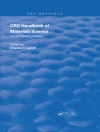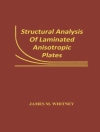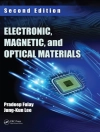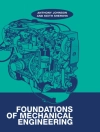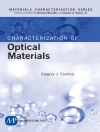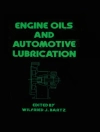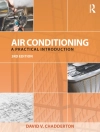This book covers historical aspects and future directions of mechanical and industrial engineering. Chapters of this book include applied mechanics and design, tribology, machining, additive manufacturing and management of industrial technologies.
قائمة المحتويات
Chapter 1. Tribology – A Tool for Mechanical and Industrial Engineering.- Chapter 2. Cutting force modeling: genesis, state of the art, and development.- Chapter 3. Evolution of additive manufacturing processes: from the background to hybrid printers.- Chapter 4. Busbars for e-mobility: State-of-the-art review and a new joining by forming technology.- Chapter 5. Autofrettage: From Development of Guns to Strengthening of Pressure Vessels.- Chapter 6. Machining of Fibrous Composites: Recent Advances and Future Perspectives.- Chapter 7. Management of Industrial Technologies.
عن المؤلف
J. Paulo Davim received his Ph.D. degree in Mechanical Engineering in 1997, M.Sc. degree in Mechanical Engineering (materials and manufacturing processes) in 1991, Mechanical Engineering degree (5 years) in 1986, from the University of Porto (FEUP), the Aggregate title (Full Habilitation) from the University of Coimbra in 2005 and the D.Sc. (Higher Doctorate) from London Metropolitan University in 2013. He is Senior Chartered Engineer by the Portuguese Institution of Engineers with an MBA and Specialist titles in Engineering and Industrial Management as well as in Metrology. He is also Eur Ing by FEANI-Brussels and Fellow (FIET) of IET-London. Currently, he is Professor at the Department of Mechanical Engineering of the University of Aveiro, Portugal. He is also distinguished as honorary Professor in several universities/colleges. He has more than 30 years of teaching and research experience in Manufacturing, Materials, Mechanical and Industrial Engineering, with specialemphasis in Machining & Tribology. He has also interest in Management, Engineering Education and Higher Education for Sustainability.


